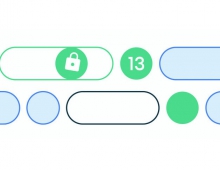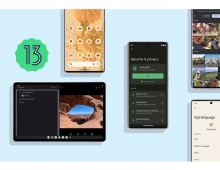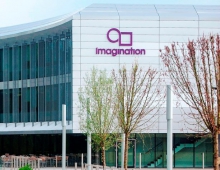
Latest PowerVR Tools Include Support for Unity and Unreal Engine 4
Imagination Technologies announced at GDC 2019 new tools to help developers optimise Android graphics performance for devices with PowerVR GPUs.
These are: PVRMonitor for real-time GPU and CPU performance statistics; PVRTune for profiling and analysing applications; and PVRStudio for seamless CPU/GPU debugging on PowerVR devices.
New versions of PVRMonitor for Unreal Engine and Unity
To make developers’ lives easier, PVRMonitor, PowerVR’s real-time GPU performance monitor for Android, will shortly be available as a plug-in for Unreal Engine, with Unity support coming early next quarter. Developers simply drag and drop the PVRMonitor widget onto their app. Once their app is launched, developers will find PVRMonitor gives a quick way to view statistics such as frame rate and hardware counter values as an overlay on the development device.
With this latest version, developers now have instant access to the full range of hardware counters previously only available through PVRTune. These include cycles per pixel/vertex, texture processing load, shader units load, and dozens more.
Developers have full control over the statistics they want to see, laying out as few or as many counter graphs as they like, setting threshold values, and even setting which colours indicate high and low values for quicker interpretation.
PVRTune enhancements
PowerVR’s hardware profiler PVRTune now has Vulkan and OpenCL support, including support for visualising Vulkan debug markers.
PowerVR will be demoing the latest enhancements at GDC which also include:
- Full shader source-code profiling
- Improvements to memory usage reporting, including new software counters for tracking application and driver memory usage
- New statistics report window
- Syntax highlighter for GLSL
- Easier deployment and direct connection to devices via the GUI
PVRStudio new features
Offering developers debugging between GPU and CPU, the latest version of PowerVR’s IDE PVRStudio now offers Android deployment and debugging, with full support for OpenCL, OpenGL ES, Vulkan and more.
Other recent developments that PVRStudio now offers include:
- GPU conditional breakpoint support / conditional shader breakpoints
- Page fault capture
- Shader source and unified shading cluster (assembler) intermixed debugging
- Improved readability of unified shading cluster code and values passed to the shader
Imagination will be demonstrating these PowerVR tools at its booth at GDC 2019.





















